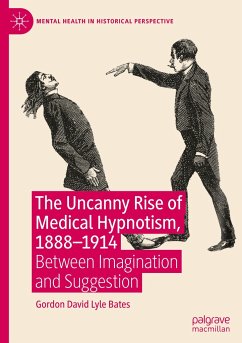
Pellagra and Pellagrous Insanity During the Long Nineteenth Century

PAYBACK Punkte
16 °P sammeln!
This open access book explores the history of pellagra, a vitamin deficiency disease brought about by a shift in agriculture to maize, and which was first identified in Italy in the 1760s. With a focus on the insanity that was caused by the disease, the authors examine how thousands of patients were treated in Italian psychiatric asylums, shedding light on the sufferer's point of view. Setting pellagrous insanity in a wider context of man-made or societal (anthropogenic) disease, where poverty, diet and disease meet, the book contributes to the history of medicine and science, the history of p...
This open access book explores the history of pellagra, a vitamin deficiency disease brought about by a shift in agriculture to maize, and which was first identified in Italy in the 1760s. With a focus on the insanity that was caused by the disease, the authors examine how thousands of patients were treated in Italian psychiatric asylums, shedding light on the sufferer's point of view. Setting pellagrous insanity in a wider context of man-made or societal (anthropogenic) disease, where poverty, diet and disease meet, the book contributes to the history of medicine and science, the history of psychiatry, economic and social history, agrarian history, and food and nutrition history. Additionally, the authors aim to transnationalise Italian history by making comparisons with related issues, such as tertiary syphilis in the UK. Drawing from a wide range of printed and archival sources, including the writings of Italian medical investigators, the book examines how medical and scientificresearch was carried out during the long nineteenth century and the uncertainties that this engendered, in terms of classification, explanation, diagnosis and treatment. Offering a unique perspective on an endemic illness which came to be known as the disease of the four ds: dermatitis; diarrhea; dementia; and death, this book provides an engaging account of one of the most perplexing causes of mental illness.














